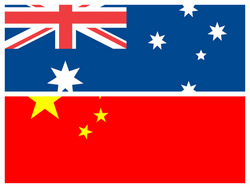Introduction

Gynaecology has a very long history in Chinese medicine. The earliest writings date from the Shang dynasty (1500-1000BC), and infertility was being discussed two thousand years ago. The earliest obstetrics text was written during the Tang dynasty (618-907AD). Probably the first medical school department devoted entirely to gynaecology and obstetrics, was that of the Imperial Medical College during the Song dynasty (960-1279AD). The subject occupies a special place in traditional Chinese medicine, and acupuncture in the twenty-first century can assist with many problems for which women often feel there is a lack of satisfactory solutions.
Conditions Typically Treated
Common conditions include PMS, painful periods, heavy periods and other menstrual irregularities, infertility, habitual miscarriage, endometriosis, polycystic ovary syndrome and menopausal symptoms. With most of these problems, the characteristics of your monthly cycle can offer clues about what lies behind your symptoms. I am likely to ask about your cycle length, its regularity and any variability. The history of your problem and any investigations and results are important too.
Menopausal and perimenopausal symptoms may include joint pains, fatigue, anxiety, loss of confidence, forgetfulness, irritability, mood swings, feeling more susceptible to stress, disturbed sleep, heat intolerance, flushes, night sweats, digestive problems, urogenital symptoms, and feeling perpetually “premenstrual”. It can be a time when professional responsibilities peak, whilst you may simultaneously be helping your children out into the world to stand on their own two feet, and caring for ageing parents.
It’s even possible to have a subtle monthly hormonal cycle at work after your periods have ceased, so that there may be a few days a month where circumstances feel even more challenging. The prestigeous online journal BMJ Open, has published research suggesting acupuncture is a realistic treatment option who women who cannot or who do not wish to use HRT. There is good evidence acupuncture can help with hot flushes & night sweats.
What to Expect
For complaints related to your monthly cycle, be prepared to come for treatment more or less weekly, for three cycles ie. around three months. This gives acupuncture a proper opportunity to start to help, and is an appropriate length of time after which to review progress. We will track your cycle, because on each visit, treatment should be tailored not only to your main complaint, but also so as to harmonise with what your body is naturally trying to do at that point in the month. In this way, acupuncture does not try to run counter to your monthly rhythm.
As usual in traditional Chinese acupuncture, I will look at your health and wellbeing in the widest sense. Any other health issues, as well as the amount of energy you have to devote to both work and family, are all relevant.
I hope this has given you a little bit of background to Chinese medical gynaecology. This area spans many different conditions, so you are always welcome to telephone and ask about anything specific.
Meanwhile, we began this article with medicine 3000 years ago. By contrast, you can read below the results of some of the research which has been undertaken into acupuncture for gynaecological complaints. The trials vary in quality, but systematic reviews and randomised controlled trials are generally considered to provide the highest quality evidence. If you would like to read more about evidence quality, I would refer you to the British Acupuncture Council’s description of the evidence pyramid.

 International collaborators including the Medical Research Institute of New Zealand and Western Sydney University, Australia, have conducted a systematic review and meta-analysis to study the potential benefits of acupuncture treatment for endometriosis. Six randomised controlled trials, from Australia, the US, Brazil, Austria and China, covering 371 women, were included in the analysis.
International collaborators including the Medical Research Institute of New Zealand and Western Sydney University, Australia, have conducted a systematic review and meta-analysis to study the potential benefits of acupuncture treatment for endometriosis. Six randomised controlled trials, from Australia, the US, Brazil, Austria and China, covering 371 women, were included in the analysis. A systematic review by university research teams in Australia and China, suggests acupuncture alone or combined with standard care, is associated with significant improvements in perimenopausal depression. A total of 25 randomised controlled trials, involving 2213 women, were examined. The benefits of acupuncture were maintained at 2, 4 and 12 week follow-ups.
A systematic review by university research teams in Australia and China, suggests acupuncture alone or combined with standard care, is associated with significant improvements in perimenopausal depression. A total of 25 randomised controlled trials, involving 2213 women, were examined. The benefits of acupuncture were maintained at 2, 4 and 12 week follow-ups. Research into acupuncture for chronic pelvic pain, shows it is as effective as local anaesthetic injections in reducing symptoms of myofascial pain. A team at the Ribeirao Preto Medical School , University of Sao Paulo, randomly assigned 35 women to receive either acupuncture or local anaesthetic injections. Acupuncture was given once a week for ten weeks. Anaesthetic was given once a week for four weeks. Patients’ pain was evaluated after one week, and at one, three and six months into the study .
Research into acupuncture for chronic pelvic pain, shows it is as effective as local anaesthetic injections in reducing symptoms of myofascial pain. A team at the Ribeirao Preto Medical School , University of Sao Paulo, randomly assigned 35 women to receive either acupuncture or local anaesthetic injections. Acupuncture was given once a week for ten weeks. Anaesthetic was given once a week for four weeks. Patients’ pain was evaluated after one week, and at one, three and six months into the study .